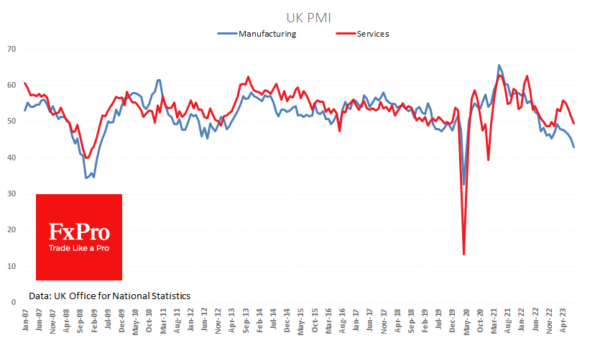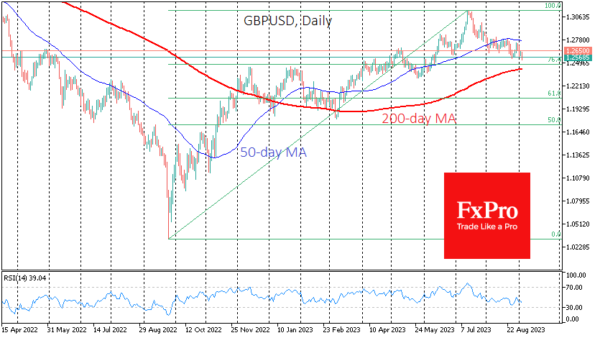Business activity in the UK is losing ground, as is the case in Europe and China, although the final reading for August saw the services PMI rise to 49.5 from the first estimate of 48.7. According to today’s PMI, the services sector moved from growth to contraction in August, falling to 49.5.
At the end of last week, the PMI for the manufacturing sector fell to 43.0. Apart from April and May 2020, the index was only lower between October 2008 and February 2009.
This dynamic clearly shows the harshness of the current monetary policy for the manufacturing sector. The services sector has only begun correcting, enjoying a long tailwind from the post-pandemic recovery.
However, the markets seem to be paying more attention to signs of a contracting economy than ‘better than expected data’. GBPUSD fell as low as 1.2530 during the day before recovering to 1.2570 by the start of active trading in New York. The pair has lost around 4.5% since mid-July, with successive lows and highs.
The pair may find tangible support in the 1.2410-1.2470 area, with the lower boundary being the 200-day average and the upper boundary being the 76.4% Fibonacci level of the entire rally from September last year to July this year.
One should also be prepared for a deeper dive to 1.2060 for an established (61.8%) retracement of this advance.


